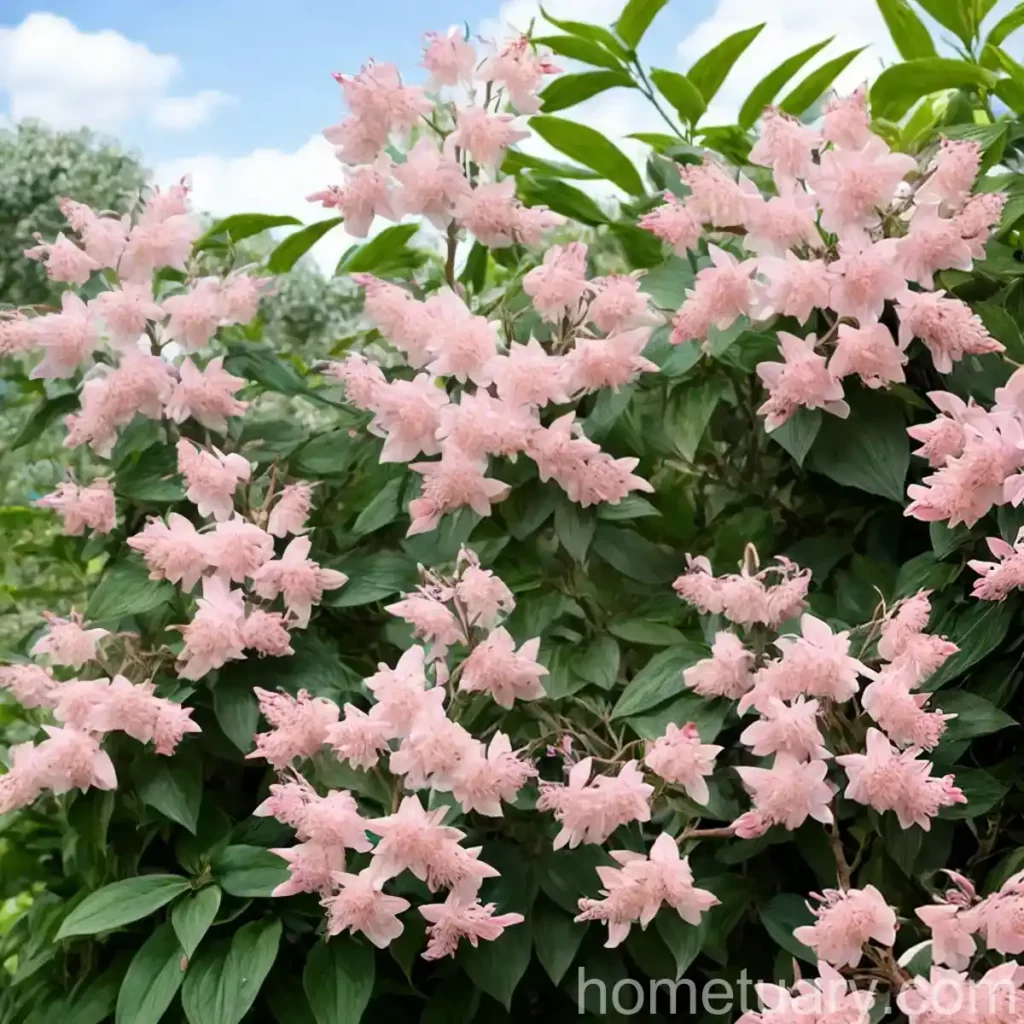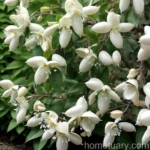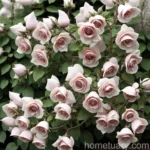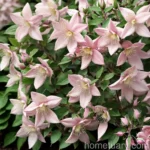Understanding the Deutzia x Rosea: A Complete Guide
Plants play a crucial role in our environment and our lives. They enrich our surroundings with their beauty and contribute to the balance of ecosystems. When it comes to cultivating plants, understanding their unique characteristics and requirements is essential. In this comprehensive guide, we will delve into the world of Deutzia x rosea, commonly known as Deutzia, exploring its culture, uses, maintenance, and much more.
What is Deutzia x Rosea?
Deutzia x rosea is a deciduous shrub that falls under the family Hydrangeaceae. It is a hybrid of two Deutzia species, and it is widely admired for its beautiful clusters of pink or white flowers. This plant is native to the regions of Asia and Central America. Its botanical name, Deutzia, pays homage to a Dutch patron of botany, Johan van der Deutz. The “x rosea” is indicative of its pink-colored flowers. This plant is popular in gardens and landscaping for its attractive appearance and ease of maintenance.
Key Takeaways
Before we delve into the details of Deutzia x rosea, let’s summarize the key takeaways associated with this plant.
- Scientific Name: Deutzia x rosea
- Family: Hydrangeaceae
- Common Names: Deutzia, Rosea Deutzia
- Growth Habit: Deciduous shrub
- Flower Color: Pink or white
- Maintenance Level: Low to moderate
- Uses: Ornamental gardening, landscaping
Now, let’s explore the various aspects of Deutzia x rosea in detail:
Culture
Understanding the cultural requirements of Deutzia x rosea is essential for ensuring its optimal growth and blooming. Let’s dive into the cultural aspects associated with this beautiful plant.
Uses
Deutzia x rosea serves several purposes in the realm of gardening and landscape design. Here are some common uses of this plant:
- Ornamental Gardening: Its graceful clusters of flowers make it an ideal choice for ornamental gardening, where it adds a touch of elegance to the landscape.
- Landscaping: Due to its moderate size and appealing appearance, Deutzia x rosea is often used in landscaping to create visually appealing floral displays.
Water
As with most plants, water is crucial for the healthy growth and development of Deutzia x rosea. While Deutzia x rosea is relatively tolerant of various moisture levels, it is important to maintain a balanced watering regimen. Here are some water-related considerations for this plant:
- Watering Needs: It prefers consistently moist soil, especially during its initial growing stages. Once established, it can tolerate short periods of drought.
- Watering Frequency: In general, watering the plant deeply once a week is sufficient, but this may vary depending on climate and soil conditions.
Sunlight
Proper exposure to sunlight is vital for the overall health and flowering of Deutzia x rosea. Understanding its sunlight requirements can help in proper placement and care of the plant:
- Sunlight Needs: Deutzia x rosea thrives in full sun to partial shade. It should receive at least 4-6 hours of direct sunlight per day to encourage abundant flowering.
- Plant Placement: When planting Deutzia x rosea, ensure that it is placed in a location with adequate sunlight based on its specific requirements.
Fertilizer
Fertilization plays a key role in providing essential nutrients to plants, and Deutzia x rosea is no exception. Understanding its fertilization needs is crucial for promoting healthy growth and prolific blooming:
- Fertilizer Type: A balanced, slow-release fertilizer is suitable for Deutzia x rosea. Look for a formulation with a higher phosphorus content to support flower production.
- Fertilization Schedule: Apply fertilizer in early spring before the onset of new growth. Avoid excessive fertilization, as it can lead to lush foliage at the expense of flowers.
Soil
The soil serves as the foundation for plant growth, and understanding the soil preferences of Deutzia x rosea is essential for its well-being. Here are some considerations related to soil:
- Soil Type: Well-draining, loamy soil is ideal for Deutzia x rosea. It should be rich in organic matter to support robust growth.
- pH Range: It thrives in slightly acidic to neutral soil, with an ideal pH range of 5.5 to 7.5.
- Soil Amendments: Incorporating compost or organic mulch can improve soil texture and fertility, benefiting the plant in the long run.
Pruning
Pruning is an essential aspect of maintaining the shape and vitality of Deutzia x rosea. Proper pruning techniques can encourage robust growth and abundant flowering:
- Pruning Time: Prune Deutzia x rosea immediately after flowering, typically in late spring or early summer. This allows the plant to set new buds for the following year.
- Pruning Technique: Remove dead or weak branches and selectively prune to maintain the desired shape and size. Avoid heavy pruning, as it can reduce flowering in the following season.
Propagation
Propagation allows for the expansion of Deutzia x rosea through new plants. Understanding the propagation methods can enable plant enthusiasts to multiply their Deutzia collection:
- Propagation Techniques: Deutzia x rosea can be propagated through softwood cuttings or division of mature plants. Softwood cuttings are taken in early summer and rooted in a suitable growing medium.
- Propagation Success: With proper care and attention, Deutzia x rosea cuttings can develop strong root systems and transition into independent plants in a matter of weeks.
Container Popularity
The compact size and graceful appearance of Deutzia x rosea make it a popular choice for container gardening. Here are some aspects associated with its container cultivation:
- Container Size: Choose a container with a diameter of at least 18 inches to accommodate the root system of Deutzia x rosea. Ensure that the container has sufficient drainage holes at the bottom.
- Growth Considerations: When grown in containers, Deutzia x rosea may require more frequent watering, as the soil in containers tends to dry out faster than garden soil.
- Aesthetic Appeal: The elegant blooms of Deutzia x rosea make it a captivating addition to outdoor spaces, such as patios, decks, and balconies.
Common Diseases
Like all living organisms, plants are susceptible to diseases. Understanding the common diseases that affect Deutzia x rosea can aid in early detection and appropriate treatment. Here are some prevalent diseases:
Powdery Mildew
Powdery mildew is a fungal disease that often affects Deutzia x rosea, especially in conditions of high humidity and poor air circulation. It appears as white, powdery patches on the leaves, leading to stunted growth and reduced flowering.
Leaf Spot
Leaf spot diseases, caused by various fungal pathogens, can manifest as dark spots or lesions on the foliage of Deutzia x rosea. If left unaddressed, severe leaf spot infections can weaken the plant and affect its overall vigor.
Disease Diagnosis
Diagnosing plant diseases is essential for implementing effective control measures. Here are some diagnostic considerations for identifying and addressing diseases in Deutzia x rosea:
- Visual Symptoms: Look for characteristic signs such as powdery patches (indicative of powdery mildew) or dark spots on the leaves (indicative of leaf spot).
- Leaf Examination: Inspect the upper and lower leaf surfaces for any abnormalities, including discoloration, distortion, or irregular markings.
- Professional Assistance: If uncertain about disease diagnosis, seek advice from local horticulturists or plant pathology experts for accurate identification and treatment recommendations.
Common Pests
Pests can pose a threat to the health and appearance of Deutzia x rosea. Familiarizing oneself with the common pests associated with this plant is crucial for implementing timely pest control measures. Here are some prevalent pests:
Aphids
Aphids are small, sap-sucking insects that can congregate on the tender shoots and foliage of Deutzia x rosea. Their feeding can cause leaf curling, yellowing, and overall stunted growth.
Spider Mites
Spider mites are tiny arachnids that can infest Deutzia x rosea, particularly in hot and dry conditions. Their feeding results in speckled or stippled leaves and the development of fine webbing on the plant.
Botanist’s Tips
Drawing from botanists’ expertise, here are some tips and insights for cultivating and caring for Deutzia x rosea:
- Companion Planting: Pair Deutzia x rosea with other flowering shrubs and perennials, such as lavender, weigela, and hydrangea, to create visually appealing garden landscapes.
- Seasonal Considerations: The appearance of Deutzia x rosea undergoes seasonal changes, from vibrant blooms in spring to a display of fall colors before leaf drop. Embrace and appreciate its seasonal transformations.
Fun Facts
Discover some intriguing and captivating facts about Deutzia x rosea:
- Butterfly Attraction: The vibrant blooms of Deutzia x rosea are known to attract butterflies, contributing to the enchanting allure of garden spaces.
- Fragrant Flowers: Certain varieties of Deutzia x rosea are prized for their pleasantly fragrant flowers, adding an olfactory dimension to their appeal.
Links to External Resources
To further enrich your understanding of Deutzia x rosea and expand your knowledge of plant care and cultivation, explore the following resources:
- Royal Horticultural Society – Deutzia x rosea
- University of Florida IFAS Extension – Deutzia spp.
- Missouri Botanical Garden – Deutzia x rosea
- North Carolina State University Extension – Deutzia spp.
In conclusion, Deutzia x rosea is a delightful addition to gardens and landscapes, offering an abundance of beauty with its elegant flowers and graceful foliage. By understanding its cultural needs, addressing common pests and diseases, and embracing its unique characteristics, plant enthusiasts can cultivate and enjoy the timeless charm of Deutzia x rosea in their outdoor spaces. Whether in a garden bed or a decorative container, this versatile shrub holds the potential to captivate and inspire with its enduring allure.
With a wealth of knowledge and a touch of botanical artistry, the cultivation of Deutzia x rosea can enrich garden landscapes and bring joy to plant enthusiasts around the world. Cheers to the splendor of Deutzia x rosea and the timeless wonders of the botanical realm!















